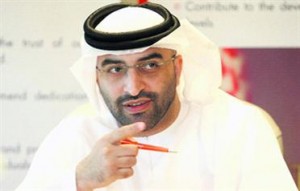The National (UAE) | April 08. 2009
James Reinl
NEW YORK // The UN’s food security expert, Olivier de Schutter, has called for a “code of conduct” to regulate the purchase of swathes of farmland across Africa, Asia and Latin America by Gulf states and private companies pursuing agribusiness.
“I am in favour of a code of conduct looking into what concerns they should respond to in negotiating such contracts,” said Mr de Schutter, the UN special rapporteur on the right to food.
“States, all too often, are led to make such deals because they are attracted to the immediate rewards, but they should also look at the long-term consequences.”
Investors from the UAE and its Gulf neighbours are at the forefront of buying and leasing vast tracts of farmland in the developing world to secure affordable food imports and keep supermarket prices low.
Last month, Abdullah bin Ahmed al Saleh, the Director General of the Ministry of Foreign Trade, said trade between the UAE and African countries had risen by 120 per cent between 2006 and 2008.
Between 2007 and the middle of last year, Mr al Saleh said, Gulf states and their government-backed businesses spent US$15billion (Dh55bn) in sub-Saharan Africa alone, much of it in the drive for food security.
Al Qudra, the Abu Dhabi-based investment firm that has plans to grow vegetables and grain in Croatia, Vietnam and Pakistan, ranks alongside such Gulf agribusiness pioneers as Mawashi, a Qatari livestock trader, and Bahrain’s public trading group, Trafco.
The Spanish agricultural rights group Grain recently reported that Gulf “countries or industrial consortia leased under contract millions of hectares of farmland” in countries such as Sudan, Pakistan and Indonesia between March and August last year.
The rapporteur, who was appointed by the Geneva-based Human Rights Council, said farmers often face “forced evictions” from the land they were cultivating once their government has traded it with a foreign buyer.
Agribusiness profits often go to officials and entrepreneurs rather than filter down to improve health care or education for poverty-racked rural communities, he said.
“Technical guides should be given to these governments so they can negotiate deals which are as beneficial as possible to human development which, for the moment, they cannot be said to be,” Mr de Schutter said.
The government of Nigeria has already been found in violation of the “right to self-determination” after awarding contracts to foreign crude firms without reinvesting the proceeds back to the community living alongside the oil fields.
“The right to self-determination is not only the right of colonised people to gain their independence, it is also the right of populations to benefit from the exploitation of their natural resources,” Mr de Schutter said.
He was in New York to meet economists, agro-ecologists and human rights specialists and to address a global food security crisis that sees one child die from malnutrition every six seconds.
Farmland purchases from the Gulf and other food-importing regions were part of a broader trade disparity that is pushing one billion people worldwide to the verge of starvation, warned Miguel D’Escoto of Nicaragua, the president of the UN General Assembly.
“We need to have an approach to food production that is multi-functional, that has a concern for the poor and their right to food, a concern for the Earth and its right to life, a concern for communities and their right to self-governance,” Mr D’Escoto said.
This week’s meeting in central Manhattan followed the Madrid High-Level Meeting on Food Security for All, held in Spain in January, and precedes a world summit on global food security planned for November.













